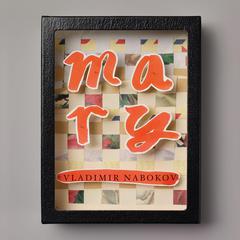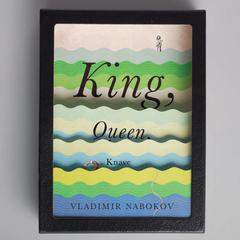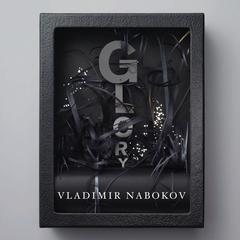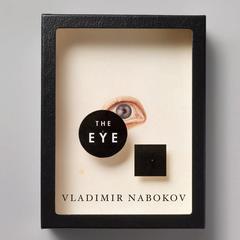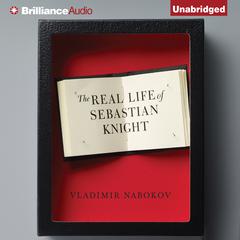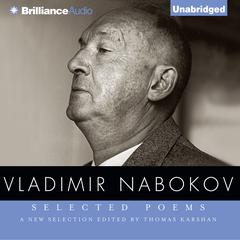 Play Audiobook Sample
Play Audiobook Sample
Transparent Things Audiobook
 Play Audiobook Sample
Play Audiobook Sample
Quick Stats About this Audiobook
Total Audiobook Chapters:
Longest Chapter Length:
Shortest Chapter Length:
Average Chapter Length:
Audiobooks by this Author:
Publisher Description
“Transparent Things revolves around four visits of the hero — sullen, gawky Hugh Person — to Switzerland. . . . As a young publisher, Hugh is sent to interview R., falls in love with Armande on the way, wrests her, after multiple humiliations, from a grinning Scandinavian and returns to New York with his bride. . . . Eight years later — following a murder, a period of madness and brief imprisonment — Hugh makes a lone sentimental journey to wheedle out his past. . . . The several strands of dream, memory, and time [are] set off against the literary theorizing of R. and, more centrally, against the world of observable objects.” - Martin Amis One of the twentieth century’s master prose stylists, Vladimir Nabokov was born in St. Petersburg in 1899. He studied French and Russian literature at Trinity College, Cambridge, then lived in Berlin and Paris, where he launched a brilliant literary career. In 1940 he moved to the United States, and achieved renown as a novelist, poet, critic, and translator. He taught literature at Wellesley, Stanford, Cornell, and Harvard. In 1961 he moved to Montreux, Switzerland, where he died in 1977. “Nabokov writes prose the only way it should be written, that is, ecstatically.” — John Updike
Download and start listening now!
"Expertly written: every word deliberate and beautiful. The themes of memory are universal but under-explored by other authors. The strict categorization of all females as either nymphettes or skotinas (brutes) is off-putting, and the tired Lolita romances bothered me."
— Morgan (4 out of 5 stars)
Transparent Things Listener Reviews
-
" If Nabokov wasn't NABOKOV by the time he sent this to his agent, then I doubt it would have been published. I hardly knew the characters and felt very little about their circumstances. Still, there are passages of gorgeous crystalline prose and fascinating ideas that hint of his genius. "
— Ben, 2/12/2014 -
" Great writing; not much of a story. Something's missing, or maybe I am missing something . . . "
— Michellette, 2/7/2014 -
" It's an okay novella. It's a clever little puzzle that I haven't solved (narrator?), and a story that is fun to re-read to see all of the clues one cannot see at first read (fire, snow globe, et cetera). "
— Shawn, 2/1/2014 -
" This book did not really feel like Nabokov had anything to do with it until the last 20-30 pages. Those are pretty good, but everything up to that just seems like vague observations of a life. "
— Amy, 12/13/2013 -
" Lesser Nabakov, but still really cool. Check it out, you person. "
— Rob, 12/1/2013 -
" I'm not sure that I'd call this a serious Nabokov novel, but the writing is incredible, chock full of puns, wordplay, and all manner of impishness. In addition, it's short. "
— Marik, 11/30/2013 -
" A short and somewhat dreary tale of a tragic love affair, saved to some extent by Nabokov's brilliant -- though sometimes infuriating -- prose and his unique way of perceiving reality. "
— Bruce, 8/4/2013 -
" While I'm amazed at Nabokov's mastery of English vocabulary and blown away by his wordplay, I can't say I enjoyed this one. Many of his phrases and sentences are brilliant but the book didn't satisfy me at all. "
— Nathan, 8/4/2013 -
" Loved this. Beautiful, mysterious, perfectly haunting. I especially loved the last line: "Easy, you know, does it, son." "
— Bridget, 9/26/2012 -
" Just another excellent novel by Nabokov. "
— Carly, 9/4/2012 -
" this is a great way to introduce someone to nabokov's brilliant use of language. "
— m., 8/6/2012 -
" Breathless reader hanging on until the last written sentence. "
— Bajo, 6/29/2012 -
" When Nabokov plays with words, the rest of us benefit for it. Short, but thick. Go through it multiple times, to (1) savor Nabokov's masterly use of language and (2) find out what on earth is going on here. "
— Hadrian, 2/22/2012 -
" Glossy prose from the late, great master. "
— Lazarus, 11/23/2011 -
" Having read Lolita some years ago I don't think this book represents Nabokov at his best. More thoughts when I finish. "
— Elizabeth, 11/11/2011 -
" This book did not really feel like Nabokov had anything to do with it until the last 20-30 pages. Those are pretty good, but everything up to that just seems like vague observations of a life. "
— Amy, 10/30/2011 -
" I'm not sure I understood this slender book at all. Nevertheless, Nabokov is an amazing writer. "
— Sarah, 10/9/2011 -
" Among other things a window into the Cadillac days of publishing houses in the '60s. "
— Daniel, 9/27/2011 -
" When Nabokov plays with words, the rest of us benefit for it. Short, but thick. Go through it multiple times, to (1) savor Nabokov's masterly use of language and (2) find out what on earth is going on here. "
— Adrian, 9/15/2011 -
" While I'm amazed at Nabokov's mastery of English vocabulary and blown away by his wordplay, I can't say I enjoyed this one. Many of his phrases and sentences are brilliant but the book didn't satisfy me at all. "
— Nathan, 8/28/2011 -
" Just another excellent novel by Nabokov. "
— Carly, 8/5/2011 -
" Nabokov continues his memory playfulness (from "Ada", and "Speak Memory among others) and narrator unreliability ("Pale Fire", "Lolita") and mixes it with his philosophy of time that he so enjoys. "
— Jim, 7/13/2011 -
" i think nabokov is a haughty prick. "
— Hunter, 6/6/2011 -
" Loved this. Beautiful, mysterious, perfectly haunting. I especially loved the last line: "Easy, you know, does it, son." "
— Bridget, 5/25/2011 -
" Entertaining and very cleverly written. Not as beautiful, perhaps, as Despair or Lolita -- but rather whimsical. "
— Lorraine, 4/23/2011 -
" <br/>Bizzaro Land. Follows the life (with wonderfully irrelevant (but who can tell for sure) details)) of Hugh Person, a copy editor (I think) who falls in love and marries Armande (totally unsuitable—and one really wonders why she agreed).<br/> "
— Beth, 4/1/2011
About Vladimir Nabokov
Vladimir Vladimirovich Nabokov (1889–1977) was one of the most prolific writers and literary critics of the twentieth century. Born in St. Petersburg, Russia, he grew up in a trilingual household and later studied Slavic and romance languages at Trinity College, Cambridge, taking his honors degree in 1922. For the next eighteen years he lived in Berlin and Paris, writing prolifically in Russian under the pseudonym “Sirin” and supporting himself through translations, lessons in English and tennis, and by composing the first crossword puzzles in Russian. Having already fled Russia and Germany, Nabokov became a refugee once more in 1940 when he was forced to leave France for the United States. There he taught at Wellesley, Harvard, and Cornell. He died in Montreux, Switzerland.
About Christopher Lane
Christopher Lane is an award-winning actor, director, and narrator. He has been awarded the prestigious Audie Award for Best Narration several times and has won numerous AudioFile Earphones Awards.






